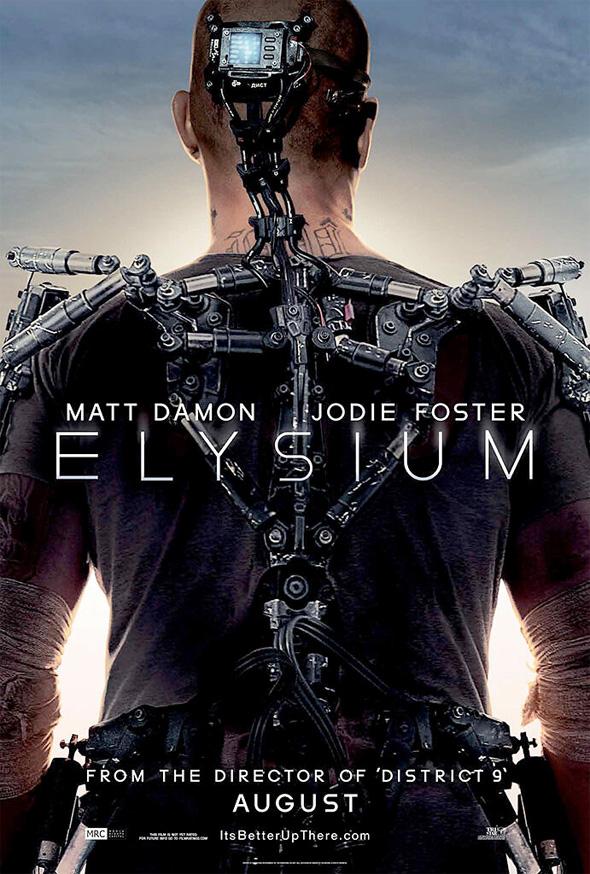Elysium: Review
We live in the age of “the 99%”. Of course, economic inequality is nothing new, yet it seems that recent years of multinational protest movements, media attention and economic troubles have truly brought the dichotomy of our planet’s wealth to the forefront of our collective imagination. One of the most technically ambitious features of the past summer, Elysium, tackles this very issue, resulting in a RoboCop-esque film with its sights set on both blockbuster action and topical allegory.
Elysium is the brainchild of South African-Canadian director Neill Blomkamp, most famous for his mockumentary apartheid-allegory, District 9. The film, set in 2154, stars a megawatt cast headlined by Oscar winners Matt Damon and Jodie Foster. Damon plays the down-on-his-luck car thief Max Da Costa, who, after being exposed to a fatal dose of radiation, requires immediate medical assistance. Unfortunately, the calibre of technology he requires is available only in “Elysium”, a satellite home for the rich and a stark juxtaposition to the polluted, crime-ridden dystopia that planet Earth has become. Foster plays the steely secretary of defence on “Elysium”, whose violent oppression of illegal immigration may be a topical critique in and of itself. Max’s quest to heal himself initiates the action of the story and sends us on a journey filled with vibrant special effects, heart-stopping action sequences and one of the most badass sci-fi armors in recent memory.
In its quest to become a thrilling summer action flick, Elysium ticks all the boxes. Sadly, however, the film’s attempt at poetic criticism falls quite short. To begin with, Blomkamp lazily forsakes the moral grayness of District 9 in lieu of characters that are quite clearly black and white. Sure, Damon’s Max Da Costa is a car thief, but by the time we meet him in the story, he has already been painted as a reformed convict bent on self-improvement. His gradual change of heart—from a desire for self-preservation to a “greater goal” of saving all of planet Earth—is equally hackneyed. Sharlto Copley plays the deliciously evil Kruger who is just that—evil. The most interesting character of the film, Jodie Foster’s Secretary Delacourt appears in scenes few and far between (which is puzzling considering she toplines the films promos along with Damon). All in all, Elysium, complete with frustratingly one-dimensional characters and clichéd plot devices, is less a societal critique than a not-so-subtle billboard which simply reads—“The world is unfair”.
7/10

















